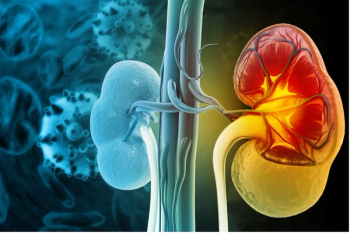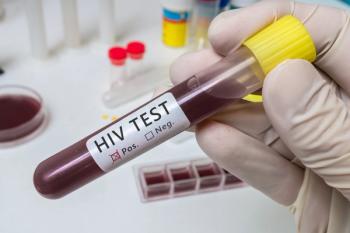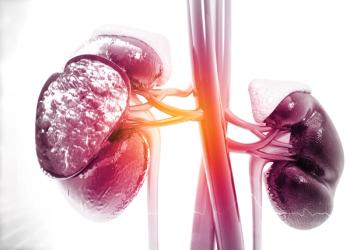
Nephrotoxic care can be improved with better risk score assessment and provider education.

Nephrotoxic care can be improved with better risk score assessment and provider education.

Improvements in AI could change the way pharmacists and providers interact with, and care for, patients.

Coca notes the importance of precision medicine in CKD risk assessment and describes the potential impact multiple therapies can have on future CKD prediction and treatment in the future.

The principal investigator of the Centre for Cardiovascular Science at the University of Edinburgh notes that enhancing endogenous repair can lead to a breakthrough in AKI treatment.

The increased costs for patients with recurrent hyperkalemia were driven by the increased inpatient medical cost of additional time spent in the hospital following recurrence.

An analysis of the REVOLUTIONIZE II study data showed that there is an unmet need for long-term outpatient treatment of hyperkalemia in patients with CKD.

Outside of dialysis and transplantations, implantable artificial kidneys present an additional option for treating kidney disease, according to an expert.

Pharmacy Times will be at the American Society for Nephrology’s (ASN) 2023 Kidney Week Annual Meeting in Philadelphia, Pennsylvania, from November 2 to 5.

This marks the first time that experts have defined cardiovascular-kidney-metabolic syndrome, including the overlap of cardiovascular disease with kidney disease, type 2 diabetes, and obesity.

Twice-daily tenapanor tablets are recommended for patients with chronic kidney disease who are on dialysis, unresponsive or intolerant of any dose of a phosphate binder therapy.


Empagliflozin (Jardiance) demonstrated a 28% relative risk reduction, with an absolute risk reduction of 3.6% per patient-year at risk in the treatment of chronic kidney disease.

The sNDA is based on data that evaluated belzutifan (Welireg; Merck) compared to everolimus (Afinitor; Novartis) for the treatment of advanced renal cell carcinoma.

With an intravenous immunoglobulin-based treatment protocol, individuals who underwent renal transplantation and who were presensitized achieved intermediate-term graft and recipient survival results at 98%.

Patients with HIV can donate a kidney to others with HIV who have a low risk of developing end-stage renal disease or other kidney problems for 2 to 4 years following donation.

A significant proportion of patients had negative hepatitis B surface antibody titers, indicating a need for vaccination to ensure protection for patients undergoing hemodialysis.

With approximately 2 years of additional follow-up, lenvatinib plus pembrolizumab maintained robust effectiveness for nearly every patient.

The approval makes remdesivir the first and only approved antiviral treatment for patients across all stages of renal disease.

Pharmacists can use their knowledge and professional judgment to educate patients about when it is appropriate to take these medications and when to avoid them.

Stormi Gale, PharmD, BCCP, a cardiology pharmacy specialist at Novant Health, discussed the important role of SGLT2 inhibitors in glycemic control.

The proportion of participants with cytomegalovirus disease was 10% with letermovir and 12% with valganciclovir.

Treatment with Injectafer significantly improved exercise capacity compared to placebo in a randomized clinical trial in adult patients with heart failure.

In addition to 2 FDA-approved options, several clinical trials are investigating other potential treatments for immunoglobulin A nephropathy.

Studies show that patients who had pharmacists as part of their transplant-related care had a significant improvement in clinical outcomes.

A linear mixed-effect model for repeated estimated glomerular filtration rate measurements at baseline and a follow-up visit, up to 5 years after baseline, shows results.